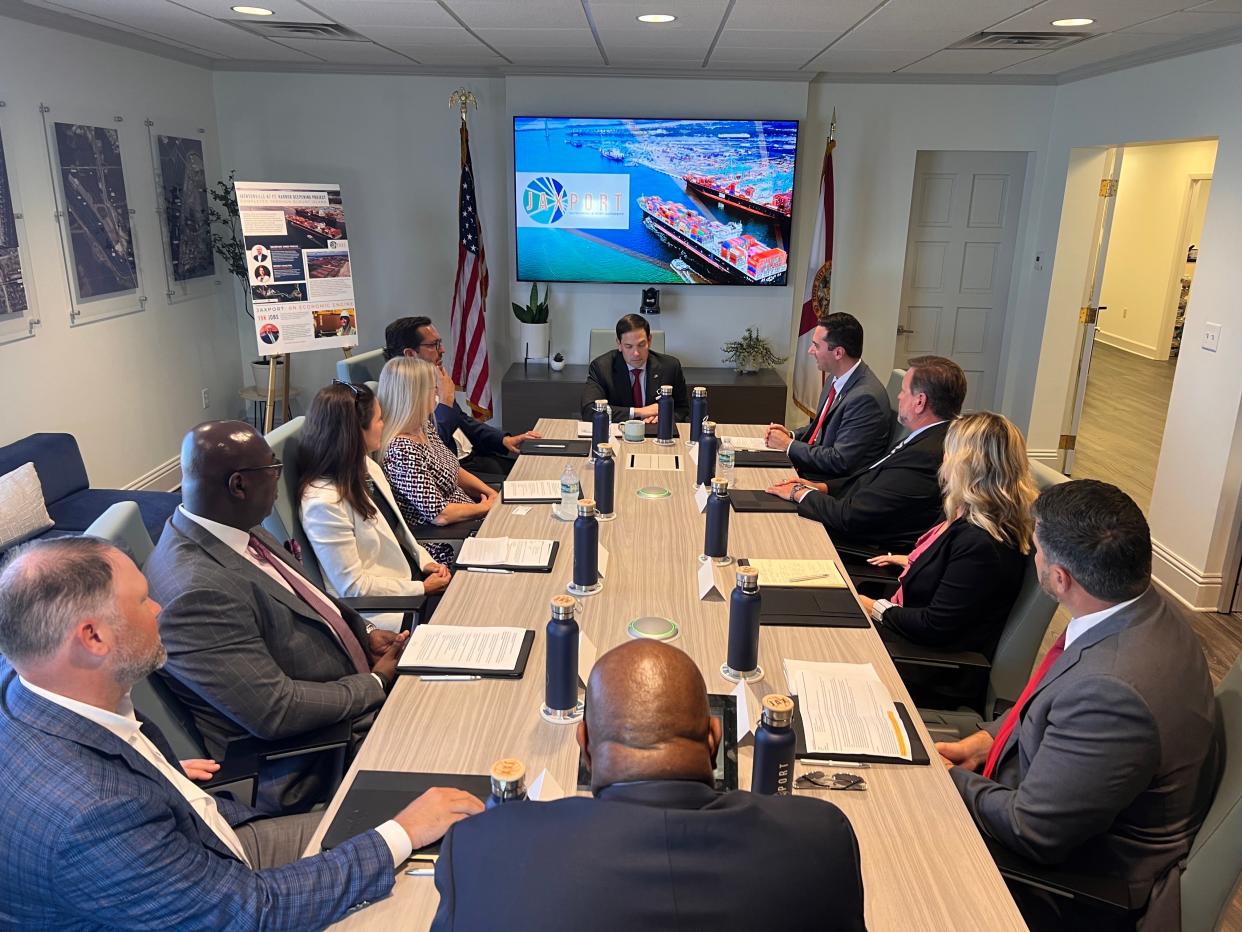Sen. Rubio says supply chain needs mending but computer chip bill would have helped China

- Oops!Something went wrong.Please try again later.
- Oops!Something went wrong.Please try again later.
U.S. Sen. Marco Rubio met with Jacksonville-based shipping companies to hear about their challenges with the global supply chain, but Rubio said after the meeting he has no regrets about opposing legislation signed last week by President Joe Biden for boosting production in the United States of computer chips.
The use of those chips is so widespread that a global shortage of them slowed the pace of automobile manufacturing because new vehicles depend on semiconductors, and that in turn contributed to a drop in the number of vehicles being shipped through Jacksonville's port.
Rubio, R-Fla., said the U.S. needs a strong domestic manufacturing base for some items and he supported boosting the nation's capacity for making computer chips. He said he voted against the bill because it failed to crack down on China stealing the designs behind the semiconductor technology.
'Severe mismanagement': Senators Rubio and Scott call for HUD to find new owners for two Jacksonville apartments
Computer chip bill: 'America is delivering': Biden signs bipartisan computer chips bill into law
“China is already stealing our intellectual property so now we’re going to put billions of taxpayer money in a system without heightened security to protect the things we invent," Rubio said. "That’s nonsensical.”
He said the legislation also creates the likelihood that some "legacy chips" will be made in China in the future with support by taxpayers.
The legislation garnered bipartisan backing in Congress for providing about $52 billion to U.S. companies making semiconductors.
“Today is a day for builders. Today America is delivering,” Biden said at the signing ceremony on Aug. 9.
Jacksonville ports seeing rise in shipments
Jacksonville is one of the nation's busiest ports for shipping automobiles.
Mitch Luciano, CEO of Jacksonville-based Trailer Bridge, said the company has begun to see a pickup in the shipment of vehicles to Puerto Rico.
"We do move a lot of the cars down to Puerto Rico and that is finally moving again," Luciano said in a roundtable discussion with Rubio at the JaxPort headquarters. "The chips are finally coming in."
Southeast Toyota, which uses Jacksonville's port for automobile shipments, said the company expects to reach full recovery in volume next year. He said one of the biggest challenges a shortage in truck drivers for moving vehicles from the port.
Rubio also heard from shippers who serve Puerto Rico, Caribbean islands and Central America that those places would be well-suited for manufacturing goods.
"Central America is roughly 10,000 miles closer to the United States than China is," said Parker Harrison, a senior vice president for Jacksonville-based Crowley. "It has a superb logistics supply chain already in place."
Rubio said he shared that view. He filed legislation that would promote the manufacture of pharmaceutical and medical equipment in the United States. He has warned that China will take over important parts of the supply chain for medical equipment.
His bill would offer tax credits in economically distressed areas including Puerto Rico, which has been trying to rebuild its pharmaceutical industry. Jacksonville is the main port for shipping goods between Puerto Rico and the U.S. mainland.
"I don’t know of any other port facility in America better positioned for the direction the 21st Century is going than JaxPort," Rubio said.
This article originally appeared on Florida Times-Union: Sen. Rubio meets with Jacksonville companies on supply chain challenges

